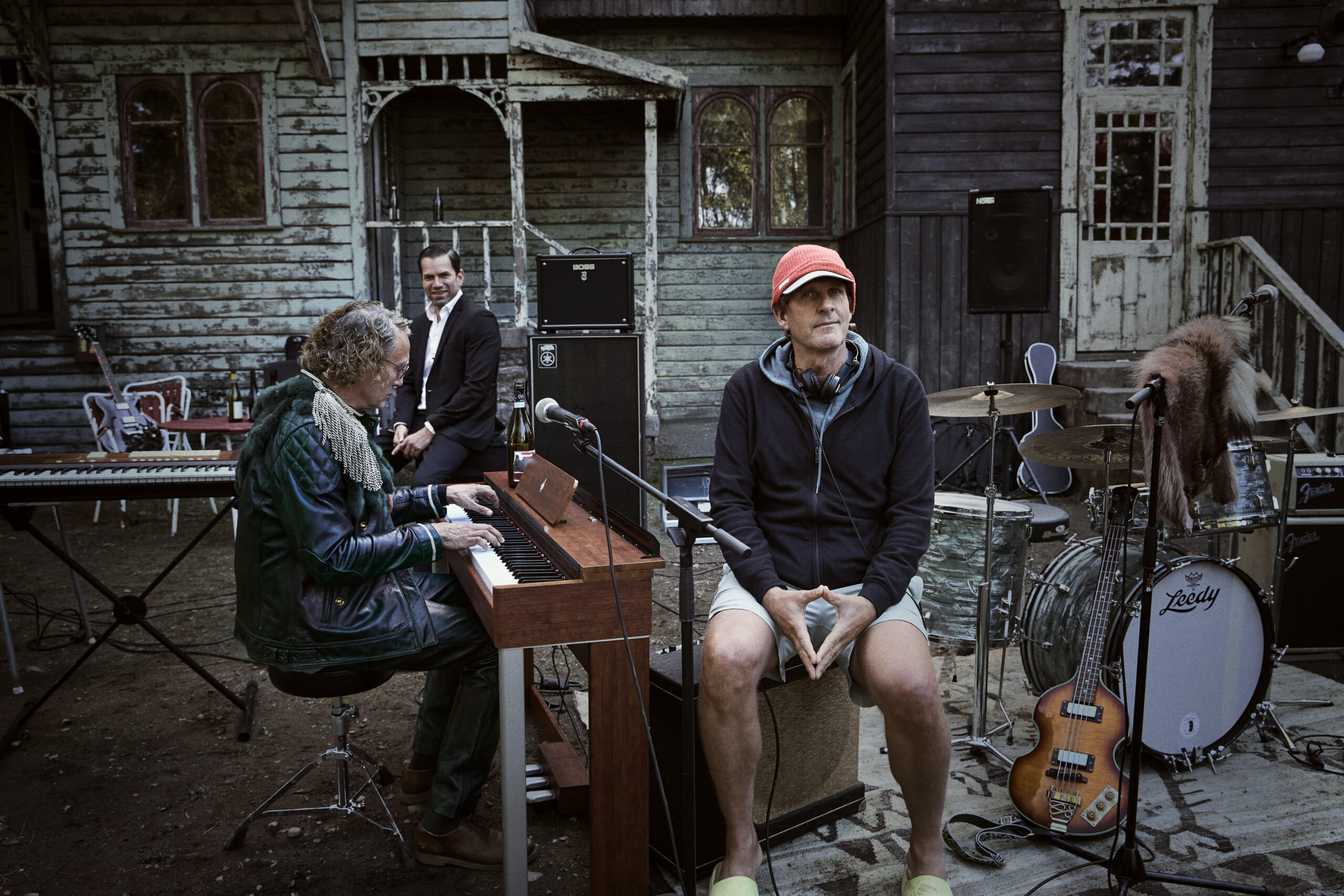An Interview with Anders Thomas Jensen
.
VERDICT: The prolific Danish screenwriter and director talks about his latest wander into the weird with Mads Mikkelsen, 'The Last Viking.'
Anders Thomas Jensen has been a staple of the Danish film scene for almost three decades with more than fifty screenwriting credits to his name as well as a growing number of singular directorial efforts. He has worked with directors such as Lone Scherfig, Niels Arden Oplev, and Nicolaj Arcel, penned films for the DOGME 95 movement and is perhaps most renowned for his collaborations with Susanne Bier, notably penning the Oscar darlings After the Wedding and In a Better World.
Jensen has a golden statuette himself, for his 1998 short film Election Night about a progressive aid worker navigating a series of outrageously racist taxi drivers as he tries to make it to the voting booth on time. It was the third time his short films were shortlisted by the Academy and two years later he went on to direct his first feature, Flickering Lights, which starred Mads Mikkelsen and Nikolaj Lie Kaas, who have both gone on to appear regularly in his films.
Across films like The Green Butchers, Men & Chicken, and Riders of Justice, Jensen has refined his knack for telling darkly comic and absurd tales with out-there performances from distinguished actors. The same can certainly be said for The Last Viking, Jensen’s latest film which premiered recently in Venice and now screens as part of the 50th Toronto International Film Festival. A fable about delusion and duty, it’s a typically offbeat meditation on how we construct our identities with some fabulously funny moments. In the event of its bow in North America, The Film Verdict had the chance to pose a few questions to Anders Thomas Jensen.
TFV: It’s always a cliche, but could you speak a little about the inception of The Last Viking? There is so much going on here – as always – and I wonder where it started?
The themes of identity and different realities are present almost everywhere in the western hemisphere. I have had ongoing conversations with my surroundings about these themes since the internet became readily available. People’s engagement in self-development and identity has exploded and I’ve always been fascinated by how almost all of us now are living in our own reality and will go to great lengths to uphold it.
TFV: You obviously have a great and long-standing collaboration with Mads Mikkelson, but over the years you’ve built an impressive troupe of actors you regularly work with. How important are those existing relationships?
They are essential. Mads, Nikolaj Lie Kaas and Nicolas Bro have been in almost all my films. I like working with them first and foremost because I think they are amazing actors. I know what they are capable of and we can skip a lot of the initial stages, dive straight in, and also dare to go places with the story and the characters where I’m not sure I would go without this ensemble. What Mads does in The Last Viking is really second to none. I know I couldn’t have gotten that from anyone else. He is outstanding in my book.
TFV: Your films as a director often have an absurd black comedy to them and yet – as is the case in The Last Viking – are akin to therapy for the characters. Do you find that surreal humour the most useful way to break open the characters’ psyches?
Yes. I like to wrap the story in a fable-layer and build my own universe. It allows me to take things to the extreme. You can get away with a lot more if you put a little sugar on the spoon – be more dramatic, more profound and more poignant. But the characters also have real pain and real problems. It’s not all laughs. We are always trying to find the right balance.
TFV: Throughout your career as a director, you’ve made films that are a mash-up of tones and genres – do you enjoy the challenge of balancing those things?
Of course. If you free yourself from genre you open up a realm of possibilities. For me good comedy also has pain and drama. The juxtaposition elevates both. It’s not that I’m opposed to genres, but it is a convention, a sales tool created to keep the audience safe from surprises. It can be great to know more or less what you are getting but sometimes the opposite is also nice. Life is multitudes so I don’t see why I should have to settle with one genre.
TFV: Do you tend to know when you start a screenplay, or come up with an idea, whether it’s something you want to direct yourself? Or does this realisation come later?
I’ll know from the start. I am often interested in something – either a theme or a character. Then it grows from there.
Read our review of The Last Viking.


